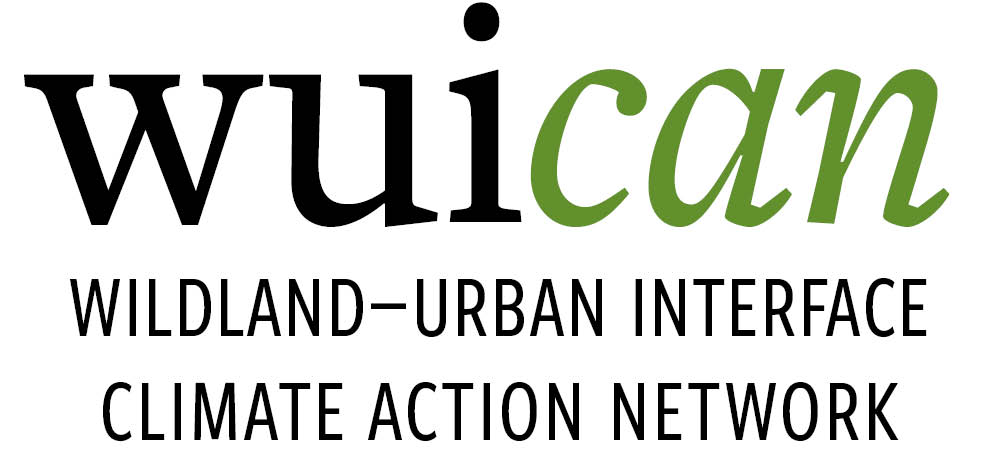
Jake Szabo
January 7, 2025
How do the smallest members of our ecosystem react to climate change? Invisible to the naked eye, microbes are organisms that inhabit every surface and corner of our world. There are estimated to be millions of microbial species, which makes their influence on our planet vast.
Steven Allison, Professor of Ecology at the University of California, Irvine and Principal Investigator for The Allison Lab, is investigating novel techniques to understand how microbes react to climate change and influence our ability to manage agriculture and landscapes. He studies how plants and ecosystems respond to drought conditions and climate change, threatening a diverse network of communities.
As Principal Investigator for the Wildland-Urban Interface Climate Action Network (or, WUICAN), Allison is also interested in changing how we can integrate a wider range of voices in the climate action conversation through university and community relationships. “How can we flip the narrative so the university is playing a role of service and following the lead of the communities rather than the other way around?” asks Allison. By challenging traditional hierarchies, he wants to create a more equitable approach to addressing climate change. Focusing on the local and the unexpected, Allison believes searching in places that have been historically glossed over is key to achieving better solutions for climate change.

From microbes to ecosystems
Allison was first introduced to climate change in his undergrad ecology classes at Penn State. Although there was a focus on sustainability, climate change science was still in its early stages. He went on to graduate school at Stanford University, initially wanting to use DNA sequencing to study soil microbes. Due to the difficulty of sequencing at the time and with an increasing concern for the changing environment, he shifted his research to the role of microbes in the carbon cycle.
Allison describes his research as “putting microbes at the center of the universe in ecology and biology, and increasingly in our landscapes and the way we think about managing or stewarding our landscapes.” At The Allison Lab at UC Irvine, he uses mathematical models to understand the diversity of microbes and their functioning.
The implications of his research are not abstract. “If you’re trying to do restoration and you’re trying to get a particular plant that you want to grow and exclude the exotic plants that are fire risks or have other problems,” Allison explains, “then you might need to also be restoring the microbiome of that plant, or of the entire system along with it.”
Changing climates of knowledge
The Allison Lab is involved with Loma Ridge Global Change Experiment, a seventeen-year study with WUICAN partner Irvine Ranch Conservancy, that has been manipulating rainfall and nutrient inputs to simulate climate change in order to analyze the effects from the plant to soil to microbe level.
Working together with different organizations is inspiring for Allison. “When collaboration works,” he says, “it’s really, really empowering and gives you a strong sense of optimism.” The ability to make change through the community and have the university act in service to the community rather than the other way around is what inspired the structure of WUICAN.
WUICAN uses grant funding to bridge the gap between university and community organizations. “How can we direct more resources to those communities?” asks Allison, “especially Indigenous communities, communities of color, and lower income communities?” WUICAN’s community-based research centers elevate the methods of stewardship, conservation, and restoration practiced by Indigenous colleagues in the region.

Experience-backed campaign
Allison has a deep desire to generate change in the community. He recently ran for public office, a seat on the Board of Directors of the Irvine Ranch Water District. Running for office was not easy, since it meant playing the political game, finding the right endorsements, and connecting with voters. While his bid for office was unsuccessful, he highlights how the local politics of climate change are more moderate. “There is a broad recognition that climate change becomes very real at the local level,” he says. In fact, Allison believes the issue of climate change is not political, but scientific and cultural.
He mentions that regardless of party affiliation, everyone on the Water Board understands the threat of climate change, saying, “You can’t deny that” in response to the impacts of the 2011-15 megadrought that Orange County experienced. Allison is concerned about local and regional issues that are tangible, such as our reliance on drinking water from the Colorado River, which isn’t drought resistant.
“What is the impact of climate change on a local level where you live your day-to-day life? What are the things you can do in your day-to-day life, to be adapting to it and to be mitigating it or to be ethical about how you’re addressing the problem? This should be our focus when we talk about climate change.”
Jake Szabo is a senior English major at the University of California, Irvine. He is a 2024-2025 WUICAN Climate Communications Fellow with the University of California Humanities Research Institute (UCHRI).
WUICAN acknowledges our presence on the ancestral and unceded territory of the Acjachemen and Tongva Peoples, who still hold strong cultural, spiritual and physical ties to this region.
Contact:
Research Justice Shop
researchjustice@uci.edu
Join the WUICAN mailing list


Follow us